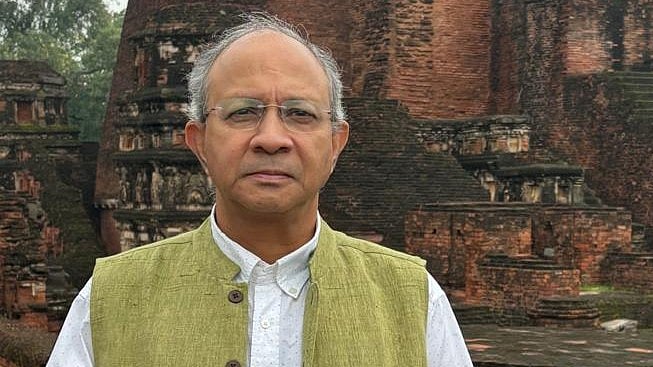
Former deputy national security adviser and National Security Advisory Board member Pankaj Saran
Credit: X/@PankajSaran11
New Delhi: Pakistan will not abandon terrorism against India but will only “relocate camps, use new methodologies and new technologies,” former deputy national security adviser and National Security Advisory Board member Pankaj Saran said on Wednesday.
In an interview with PTI Videos on the 17th anniversary of the 26/11 Mumbai attacks, Saran warned: "In 80 years, Pakistan has concluded that terror with deniability has kept India in check. After Operation Sindoor, they will change tactics. We will also change ours. This is a dynamic situation."
"Pakistan will follow all the tricks of the trade that they know, because our study shows that in 80 years they have come to the conclusion that such strategies of using terror with deniability and through organisations which they can disown has, from their point of view, kept India in check. After Sindoor, they will relocate their terrorist holdouts and camps. They will use new methodologies, new technologies," he underlined.
The former ambassador said India's response has evolved dramatically since 1947. "We first went to the UN. Then, only diplomatic protests. Later Operation Parakram, but no war. Today, we treat Pakistan-sponsored terror as an act of war and reserve the right to hit back at the attackers and their patrons," he said.
NatStrat, the think tank founded by Saran, released a 300-page report on Tuesday documenting Pakistan-sponsored terrorism in India from 1947 to 2025. The study divides the 78-year campaign into five phases and describes it as a consistent, ISI-driven strategy to exploit India's fault lines while maintaining deniability.
Asked for the single most critical policy recommendation, the former diplomat stressed institutional reform and intelligence synergy.
"Lessons from Pulwama 2019 and the recent attacks must be internalised and implemented. We must have synergy among all our internal agencies and improve our intelligence capabilities to prevent such attacks in the future," he said, adding that the revocation of Article 370 had helped address internal vulnerabilities exploited by Pakistan.
The report identifies five phases: 1947-1971 (including early Kashmir insurgency); 1971-1989 (rise and peak of Khalistan movement); 1989-2001 (Kashmir insurgency and Parliament attack); 2001-2008 (urban terror wave culminating in 26/11 Mumbai attacks); and 2008-present (including Pulwama 2019 and recent attacks leading to Operation Sindoor in May 2025).